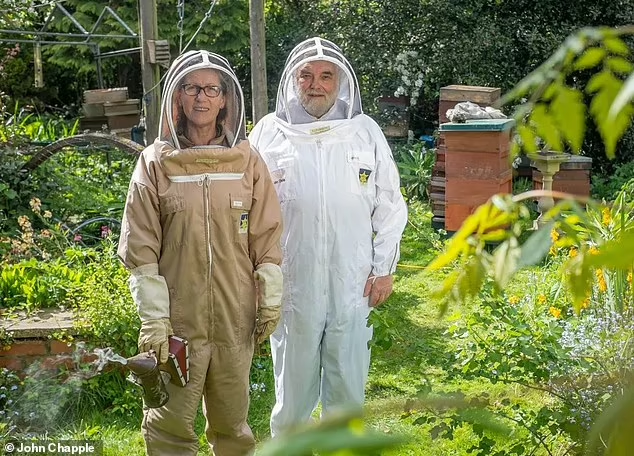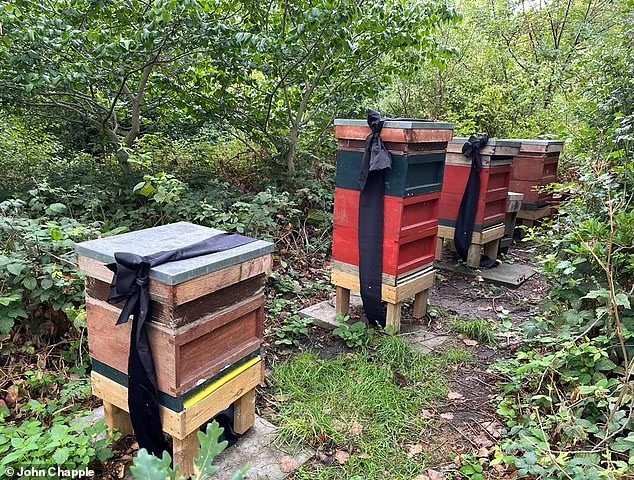An arcane tradition in the UK monarchy is to announce to the royal bees they are working with. The royal beekeeper has informed the hives on the grounds of Buckingham and Clarence House of the Queen's death.
The bees have also been told in hushed tones that their new master is now King Charles III.
79-years old John Chapple is the official Palace beekeeper who traveled to Buckingham and Clarence House on Friday carrying the news of the Queen's death as a part of their superstitious tradition.
He placed black ribbons tied into the hives--roughly tens of thousands of bees--before announcing the good and bad news.
Chapple is already retired, and beekeeping is just his hobby; he looks after the hives of a few important people, including the late queen.

The Beekeeper's Announcement
Chapple urged the winged insects to be good to the king-talking to the bees as plants.
The strange tradition is underpinned by an old superstition that not telling the bees of a change of ownership will lead to the bees leaving the hive, not producing honey, or worse, dying.
In an interview with MailOnline, Chapple explained how the tradition works and how he draped the bows around the bee's hives from Clarence House to Buckingham.
During the height of the summer, Chapple takes care of the royal over that was counted million at that time. But the heat of the summer dropped the number of bees to the current count.
There are five hives in Buckingham Palace and two hives in Clarence House.
Chapple worked as the royal beekeeper for 15 years and remembered the time he got the royal role.

ALSO READ : Climate Change Is Causing Bees to Be More Stressed; Museum Collections Show How This Has Taken Place [Study]
European Superstition About the Bees
John Chapple predominantly cares for Dark European Honey bees or the London Mongrels. These bees were native to mainland Britain before the rising sea levels that led to the closing of the Channel Landbridge. Announcing the bees is a custom in many European countries in which the bees should be told important events in their owner's lives.
If the tradition was forgotten, the bees were not 'put into mourning,' then it was believed as a consequence would be paid, such as bees leaving the hive, stopping honey production, or dying.
This belief originated in England that transcends Ireland, Wales, Germany, France, The Netherlands, Switzerland, Bohemia, and the US.
Bees are known to have a unified purpose throughout their existence. To protect their queen and produce honey. According to Mannlake Bee and Ag Supply, honey bees communicate in two ways: movement and odor. The bees use this behavior to create and send messages throughout the hive, locate nearby food sources, and transfer information.
Honey bees' movement is called 'waggle dance.' They dance to locate food sources more than 150 meters from the hive. While their odor or called pheromones, cues transfer information and messages within the colony.
RELATED ARTICLE : Urban Gardens in California Hosts Rare Plants, Birds, and Bees
Check out more news and information on Bees in Science Times.
© 2026 ScienceTimes.com All rights reserved. Do not reproduce without permission. The window to the world of Science Times.












